News
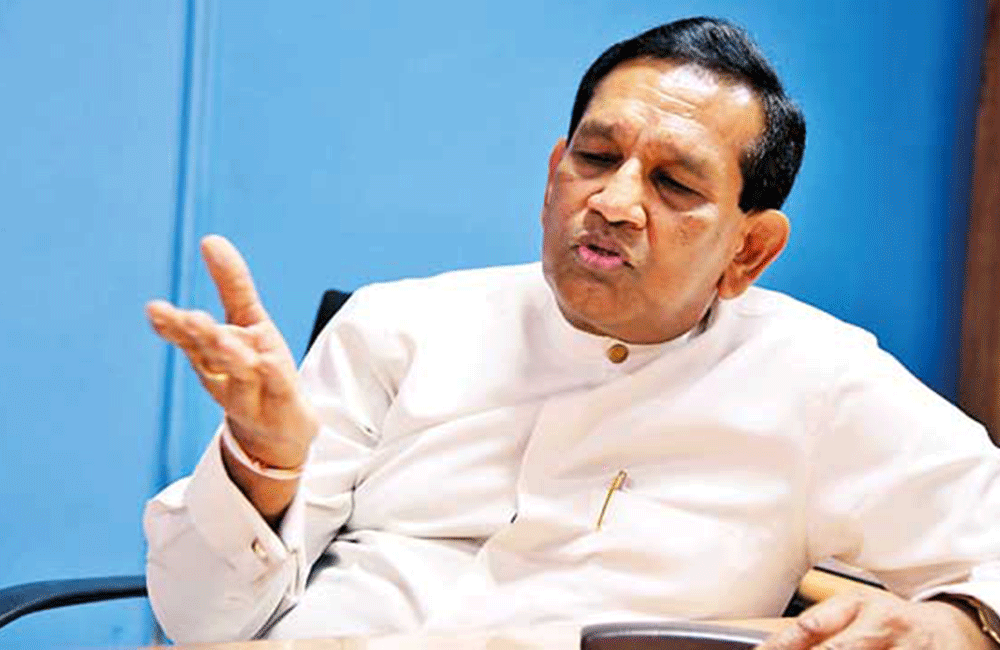
Court Orders Rajitha to Appear Over Rs. 26M Fraud
The Colombo Chief Magistrate’s Court issued a formal notice to former Minister Rajitha Senaratne, instructing him to appear before the court on August 29.
The notice was issued by Chief Magistrate Tanuja Lakmali Jayatunga, under Section 60(1) of the Code of Criminal Procedure, following a motion filed by the Bribery Commission.
During the hearing, Assistant Director of Legal Affairs Sulochana Hettiarachchi, appearing on behalf of the Bribery Commission, stated that in order to obtain an order under Section 60(1), supporting evidence must be presented.
Accordingly, two investigating officers were summoned to provide testimony regarding an alleged irregular project involving the Kirinda Fisheries Harbour and the use of the Weligowwa fishing vessel.
The officers—Chief Inspector Tushara Sampath Pushpakumara and Inspector M. Wimalaratne of the Bribery Commission’s Investigations Division—testified that the investigation was initiated based on an anonymous complaint.
They revealed that the project had caused a financial loss of Rs. 26.2 million to the Government of Sri Lanka.
Following preliminary investigations, former Chairman of the Fisheries Corporation Upali Liyanage and former Fisheries Minister Rajitha Senaratne were named as suspects.
The investigating officers informed the court that the first suspect, Upali Liyanage, was previously arrested and released on bail under court orders. However, the second suspect, former Minister Rajitha Senaratne, has reportedly evaded the Bribery Commission.
Investigators informed the court that although a notice was issued on August 7 requesting the former minister to appear before the Commission and provide a statement, he failed to do so.
Instead, his legal counsel submitted a prescription slip citing illness, in lieu of a formal medical report.
Due to his continued absence, investigators obtained a search warrant and inspected five locations where the minister was believed to be staying. However, he was not found at any of those premises.
Investigators further stated that the inability to obtain a statement from the suspect has hindered the final stages of the investigation.
Therefore, they requested the court to issue a formal notice under Section 60(1) of the Criminal Procedure Code, compelling the suspect to appear. After reviewing the evidence, the magistrate issued the order accordingly.
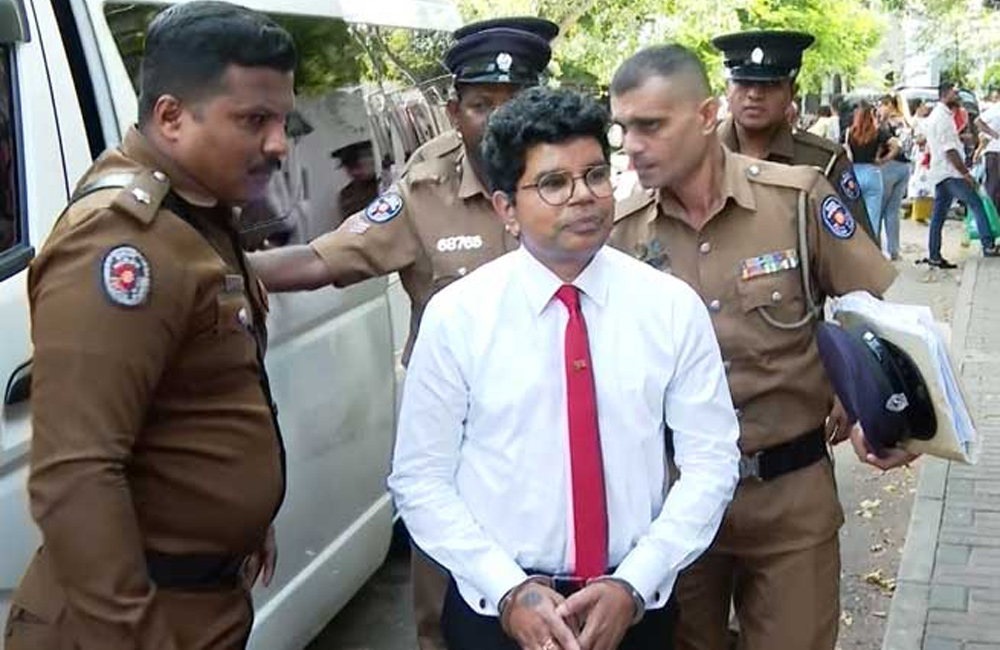
Halloluwa Remanded Over Alleged Staged Shooting
Former Director of the National Lottery Board, Thusitha Halloluwa, has been remanded until August 28 following his appearance before the Aluthkade Magistrate’s Court today.
Halloluwa was arrested early this morning under an outstanding warrant, in connection with an investigation into a shooting incident targeting his vehicle.
The arrest was made by the Colombo Crimes Division, which presented him to court as a suspect in orchestrating the attack.
According to police, preliminary investigations suggest that organized criminals may have been hired to carry out the shooting, allegedly under Halloluwa’s direction.
The motive, as revealed in court, was to create public discontent toward the President and the government.
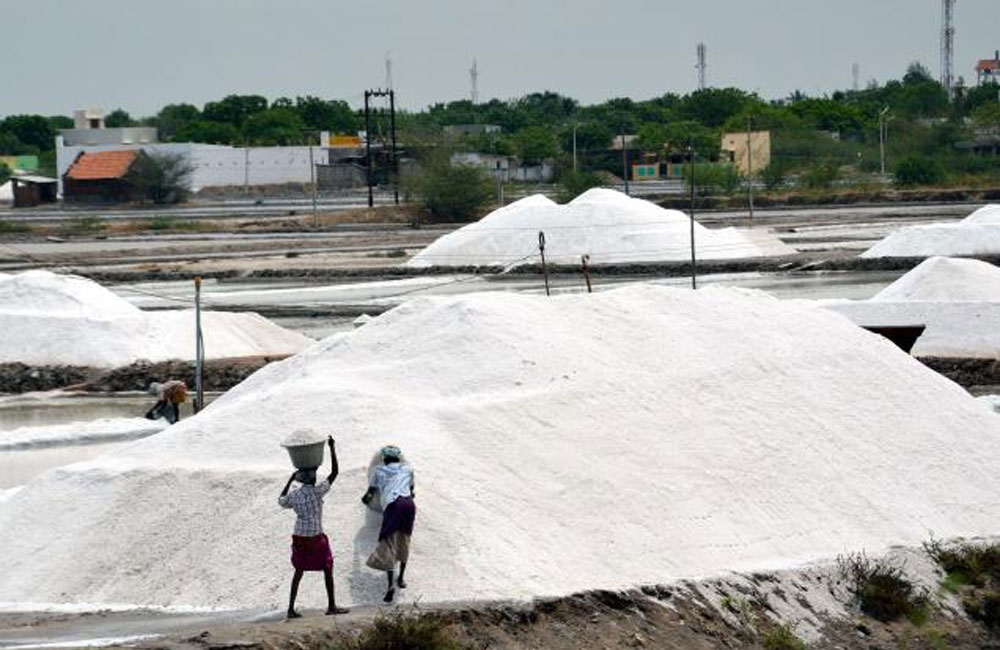
Lanka Salt Company reduces prices of Iodized Salt
The Lanka Salt Company has announced a reduction in the prices of iodized mixed Lak Salt.
The Chairman of the company stated that the price of a 400g packet of iodized salt powder has been reduced by Rs. 20, to Rs. 100.
He further said that the price of a 1kg packet of iodized salt powder has been reduced by Rs. 30, to Rs. 200.
Addressing the media today, he said that the price of a 1kg crystal salt packet has been reduced to Rs. 150.
Noting that the price reduction will be effective starting next week, he added that a 400g packet of the company’s salt powder will be available at Sathosa outlets for Rs. 90.
He further explained that the price reduction was introduced to provide relief to the public, as salt harvesting has already begun at the Mahalevaya, Bundala, and Palatupana salterns in Hambantota.
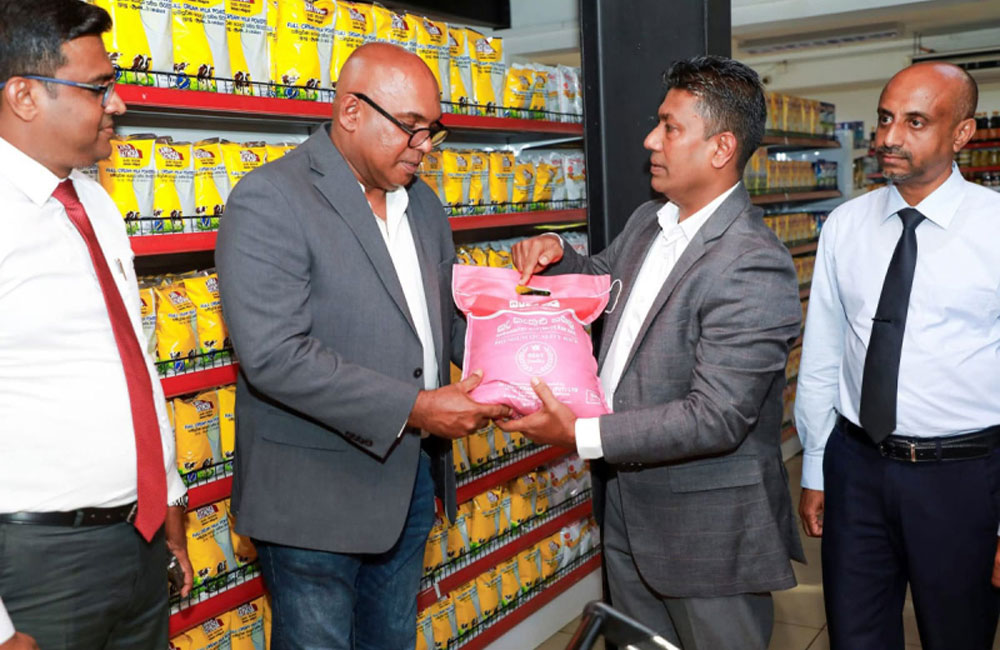
Sathosa launches rice under new brand initiative
The government has launched the first phase of releasing essential food items under the National Sathosa brand.
The initiative was marked today (18) with the release of packaged Nadu and White Kekulu rice at the Lanka Sathosa outlet inside the Narahenpita Special Economic Centre. The event was attended by National Cooperative Wholesale Establishment (NCWE) Chairman Kosala Wilbawa and Lanka Sathosa Chairman Dr. Samitha Perera.
From today, consumers across the country will be able to purchase Nadu and White Kekulu rice under the newly introduced National Sathosa brand through Lanka Sathosa outlets islandwide.
The NCWE, one of Sri Lanka’s oldest state institutions, was previously earmarked for closure under the former administration. However, the new government revived the entity under a fresh mandate as the National Cooperative Wholesale Establishment.
Under the guidance of Trade, Commerce, Food Security, and Cooperative Development Minister Wasantha Samarasinghe, the NCWE will gradually introduce 23 essential food items to the market at fair prices. The program aims to ensure food security while eliminating shortages of quality goods.
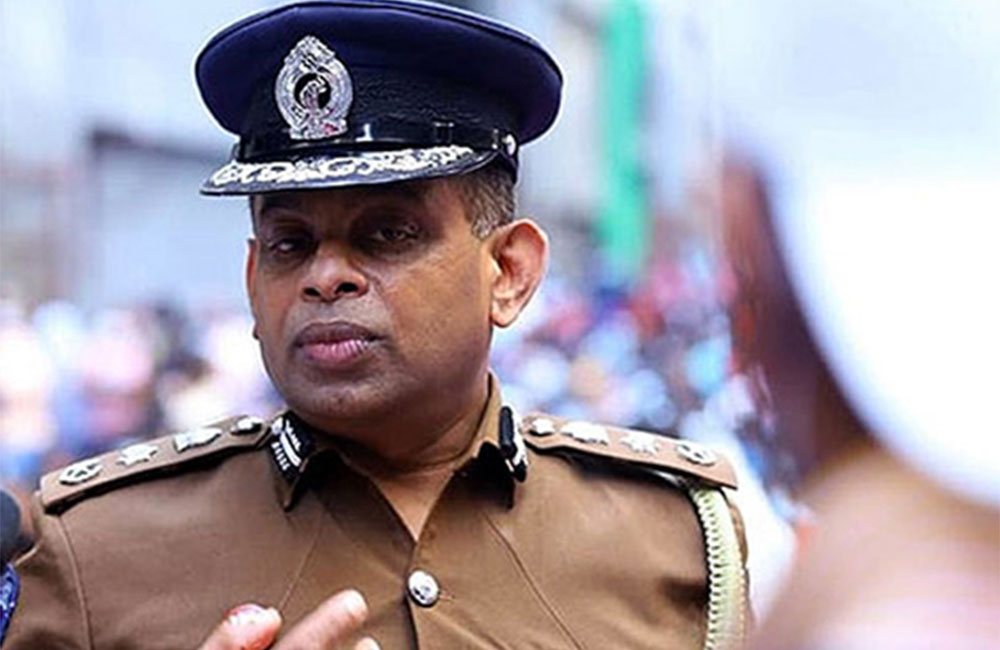
Former IGP Deshabandu Tennakoon arrested
Former Inspector General of Police (IGP) Deshabandu Tennakoon was arrested by the Criminal Investigations Department (CID) today.
It is reported that Deshabandu Tennakoon was arrested in connection with a case related to the ‘Aragalaya’ people’s struggle in 2022.
Deshabandu Tennakoon was named as a suspect in the case.
His arrest comes after the Colombo Fort Magistrate’s Court today rejected the anticipatory bail application filed by Tennakoon.
Tennakoon had sought anticipatory bail to prevent his arrest in connection with an ongoing investigation, but the court refused to grant the request after considering submissions.

China develops world’s first ‘pregnancy humanoid’ capable of giving birth to a live baby
Scientists in China are developing the world’s first ‘pregnancy robot’ capable of carrying a baby to term and giving birth.
The humanoid will be equipped with an artificial womb that receives nutrients through a hose, experts said.
A prototype is expected to be released next year, with a selling price of around 100,000 yuan (£10,000).
Dr Zhang Qifeng, who founded the company Kaiwa Technology, is developing the machine.
The device he envisions is not simply an incubator but a humanoid that can replicate the entire process from conception to delivery, Asian media outlets report.
He said the artificial womb technology is already in a ‘mature stage’ and now needs to be implanted in the robot’s abdomen, ‘so that a real person and the robot can interact to achieve pregnancy’.
With regards to ethical and legal issues, he said: ‘We have held discussion forums with authorities in Guangdong Province and submitted related proposals while discussing policy and legislation.’
Experts have not yet provided any specifics on how the egg and sperm are fertilised and implanted in the artificial womb.
Dr Zhang’s revelations were made during an interview shared on Duoyin, the Chinese version of TikTok.
Previously, scientists have successfully kept premature lambs alive for weeks using an artificial womb that looks like a plastic bag.
The ‘biobag’ provided everything the foetus needed to continue growing and maturing, including a nutrient–rich blood supply and a protective sac of amniotic fluid.
After 28 days of being in the bag, the lambs – which otherwise would likely have died – had put on weight and grown wool.
While the biobag acts like an incubator, allowing premature individuals to grow in an environment similar to the womb, scientists hope the pregnancy robot will be able to support the foetus from conception to delivery.
The development is reminiscent of the 2023 film The Pod Generation, where a tech giant offers couples the option of using detachable artificial wombs or ‘pods’ to share pregnancy.
If it comes to fruition, the humanoid pregnancy could be seen as a tool to help tackle rising rates of infertility in China.
Reports suggest the rates of infertility in China rose from 11.9 per cent in 2007 to 18 per cent in 2020.
In response, local governments in China are including artificial insemination and in vitro fertilization treatments in medical insurance coverage to support childbirth for infertile couples. (Daily Mail)
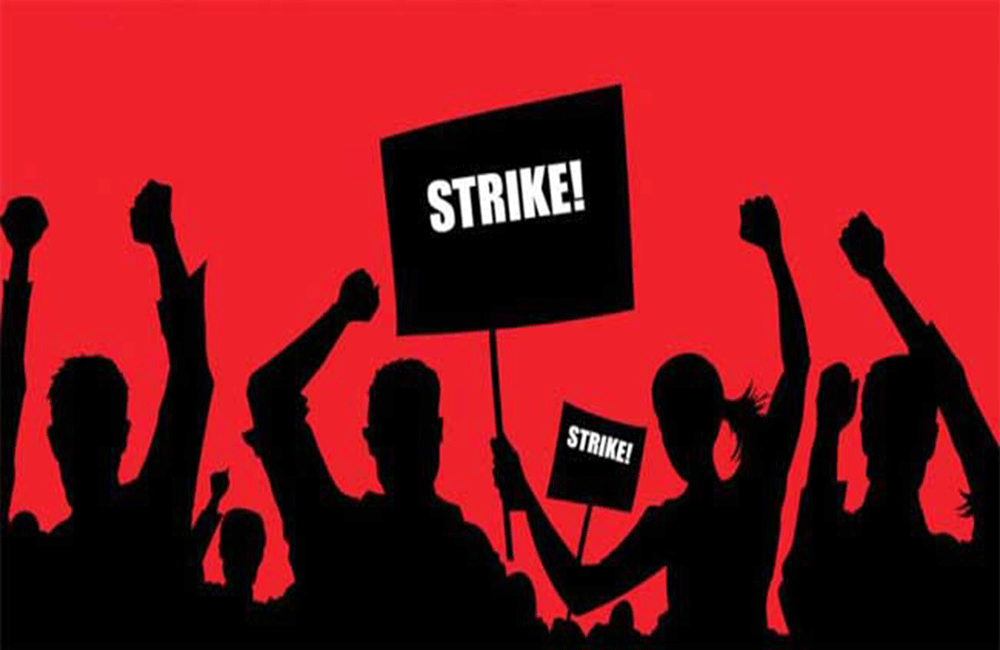
Postal strike to continue despite talks with officials
Postal trade unions have announced that their strike action will continue uninterrupted, despite a successful discussion at the Presidential Secretariat today.
Following a meeting with the Director General of Public Relations at the Presidential Secretariat, Dharmasiri Gamage, the unions shared their stance with the media.
“We request an immediate meeting with the Minister. After that discussion, we are prepared to end the continuous strike. Until then, the strike will remain in effect,” President of the Association of Postal and Telecommunication Officers, E.G.C. Niroshan, said.
The strike, which began on Sunday (17), is based on 19 key demands. As a result, operations at post offices across the country have been severely disrupted.
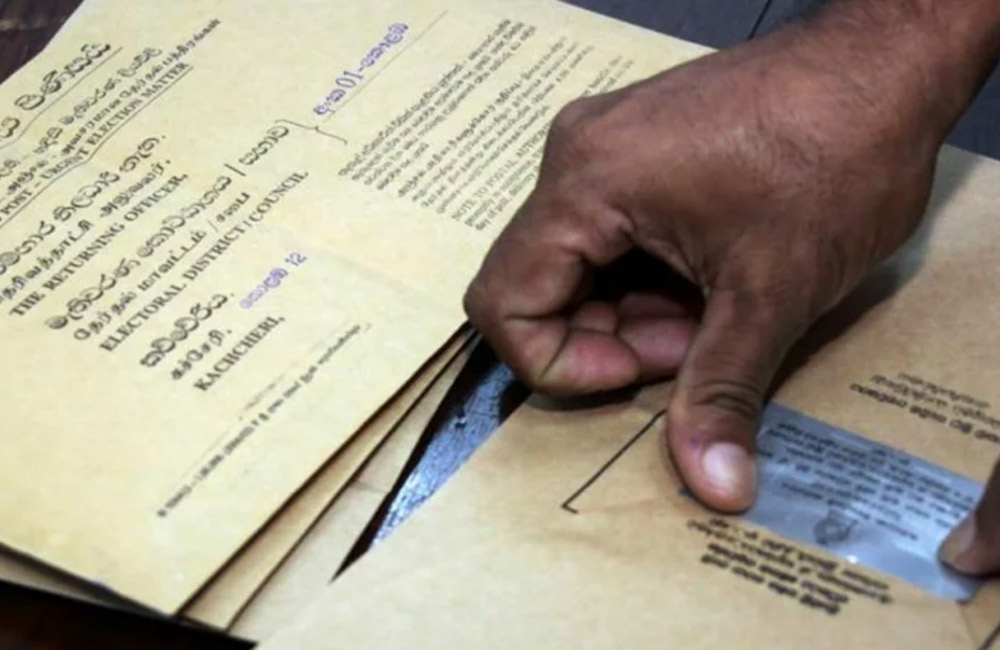
Nationwide Postal Strike Escalates Over 19 Demands
Postal workers at the Central Mail Exchange have launched a strike, citing 19 grievances including issues related to overtime payments and the mandatory fingerprint system for recording attendance.
Joint Postal Trade Union Association Convener, Chinthaka Bandara, confirmed the strike action, which follows the cancellation of all postal workers’ leave.
The protest is jointly backed by the Postal and Telecommunications Officers' Association and the Joint Postal Trade Union Front.
Workers had already withdrawn from overtime duties since yesterday morning, intensifying their trade union action.
Postmaster General P. Sathkumara, however, described the strike as unfair.
He stressed that overtime payment conditions and fingerprint-based attendance are government policy decisions, adding that 90 percent of the department’s total expenditure is already spent on salaries and overtime.
He further emphasized that postal services cannot operate outside government rules, regulations, and audit directives.

Govt to seek bids to reopen Elephant Pass – North Saltern under PPP model
The Cabinet of Ministers has granted approval to a cabinet paper presented to call for bidders at international level to reopen the Kurunchathivu (Elephant Pass – North) Saltern under a Public – Private Partnership methodology.
Although measures have been taken to call for bids from local investors for inaugurating the production and monitoring activities of the Elephant Pass – North Saltern which had been halted due to the conflict with the LTTE, under the Public – Private Partnership methodology, authorities did not receive adequate interest to materialize the programme, according to Cabinet Spokesman Dr. Nalinda Jayatissa.
Accordingly, the Cabinet of Ministers has granted approval to the proposal furnished by the Minister of Industries and Entrepreneurship Development to call for bids at international level for the reopening of the Kurunchathivu (Elephant Pass – North) Saltern under Public – Private Partnership methodology.
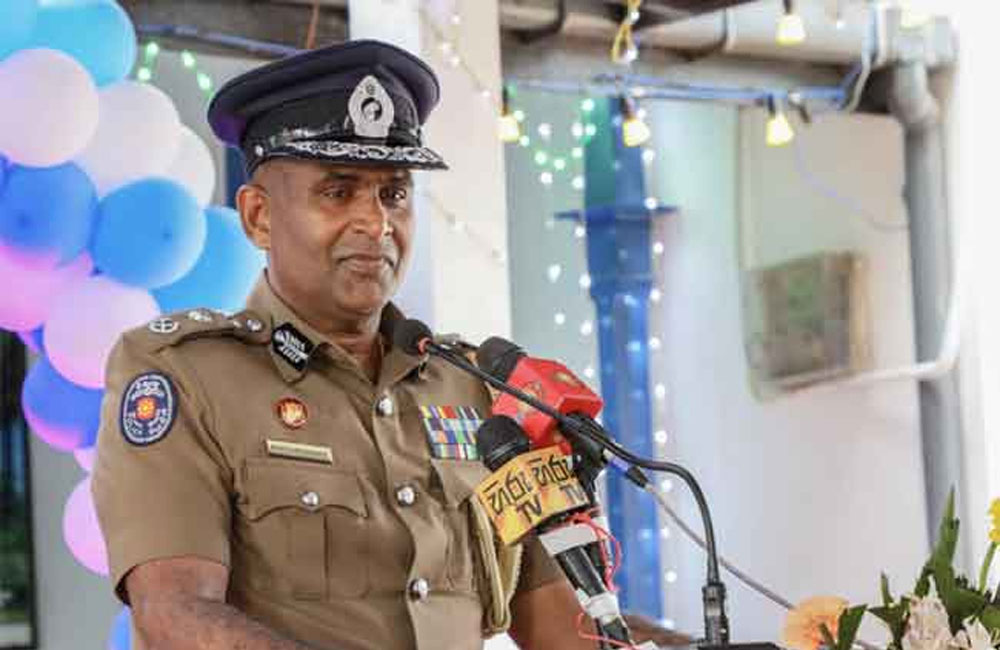
IGP Vows Stronger Action to Curb Underworld Activities
Inspector General of Police Priyantha Weerasooriya says that a more systematic approach is currently being implemented to curb underworld activities than the methods previously in place.
He made this statement today after visiting the Mahanayake Theros of the Asgiri and Malwathu Chapters in Kandy.
Inspector General of Police Priyantha Weerasooriya visited the Temple of the Sacred Tooth Relic this morning and paid homage to the sacred relics.
Thereafter, the IGP called on the Anunayake Thero of the Malwathu Chapter of the Siam Sect, Venerable Dimbulkumbure Wimaladhamma Thero.
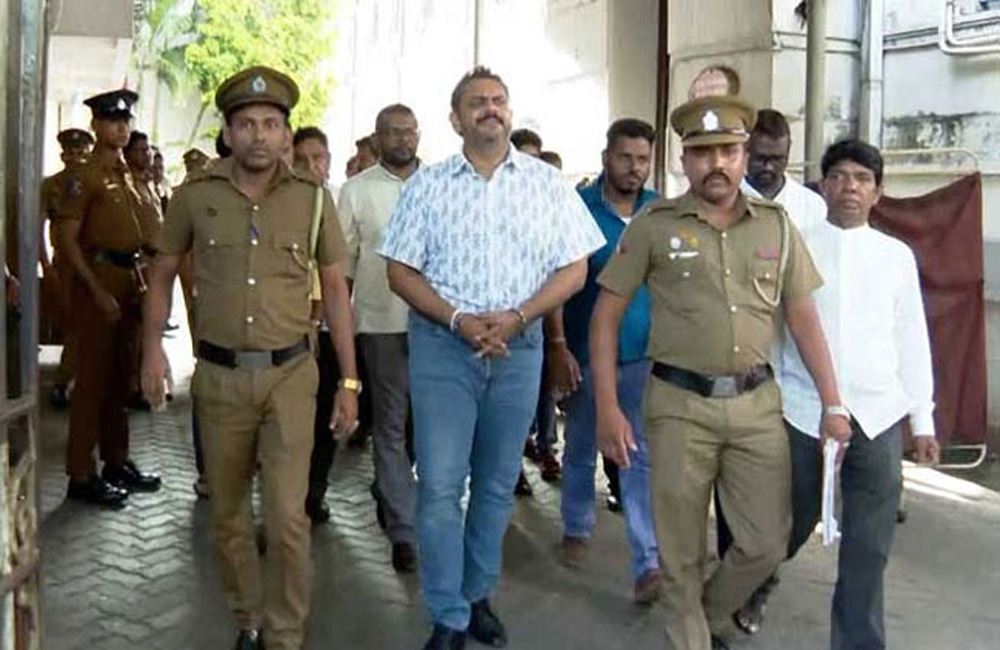
Former State Minister Shasheendra Rajapaksa Further Remanded Until 26th
Former State Minister Shasheendra Rajapaksa has been remanded until August 26 by Colombo Chief Magistrate Tanuja Lakmali Jayatunga, following allegations of committing offenses under the Public Property Act.
The case relates to a property in Sevanagala, belonging to the Mahaweli Authority, where a building was allegedly constructed without authorization and later damaged during the 2022 Aragalaya (protest movement). Rajapaksa is accused of pressuring officials to obtain Rs. 88.5 million in compensation for the damaged property.
He was arrested by the Bribery Commission and remanded until today, when the case was taken up in court.
Appearing on behalf of the Bribery Commission, Assistant Director of Legal Affairs Sulochana Hettiarachchi informed the court that several officials from the Mahaweli Authority were also implicated in the fraudulent activity and would be arrested and presented to court in due course.
She further stated that Rajapaksa had exerted pressure on the Director General of the Mahaweli Authority, as revealed in official statements.
“Your Honor, the suspect minister has influenced the Director General and other officials of the Mahaweli Authority to issue letters and facilitate the compensation. Investigations show that undue pressure was applied to the damage assessment officers as well. Since inquiries are ongoing and witnesses may be influenced, we request that the suspect be remanded.”
Representing Rajapaksa, President’s Counsel Sampath Mendis argued that his client suffers from sleep apnea, a condition that could pose serious health risks if detained. He requested bail suitable grounds.
“Your Honor, the building in question was destroyed during the 2022 Aragalaya protests due to arson. The land on which it stood belongs to the Mahaweli Authority, and my client is not the owner of this property. The compensation for the damaged building was received by an individual named Manoj Ekanayake. The Bribery Commission has arrested my client on the allegation that he conspired in this matter. However, while the main suspects remain at large, my client has been taken into custody. Your Honor, I respectfully submit that all individuals connected to this incident should be thoroughly investigated. Furthermore, my client suffers from sleep apnea, a condition that poses a serious risk to his life if he remains in custody. He is also preparing to sit for his first-year law exams at the Law College in October. In light of these circumstances, I kindly request that my client be released on suitable bail.”
After considering submissions from both parties, Magistrate Jayatunga ordered that Shasheendra Rajapaksa be remanded until August 26, and instructed investigators to report progress on the inquiry at the next hearing.

Postal Employees’ Leave Cancelled Amid Planned Strike
All leave for postal employees has been cancelled after a group employees planned to go on strike from tomorrow.
According to Chinthaka Bandara, convener of the Joint Postal Trade Union Association, The Postal and Telecommunications Officers’ Association and the Joint Postal Trade Union Front cited 19 issues, including overtime payments and the use of fingerprint machines to record attendance, as reasons for the planned strike.
Postal employees have also begun withdrawing from overtime services since this morning.
In response, Postmaster General P. Sathkumara issued a statement this afternoon calling the trade union action “very unfair.”
He said that policies on overtime payments and attendance recording are government decisions, and noted that 90 percent of the department’s total costs are spent on salaries and overtime.
The Postmaster General emphasized that the department cannot operate outside government rules, regulations, and audit instructions.
Page 100 of 656